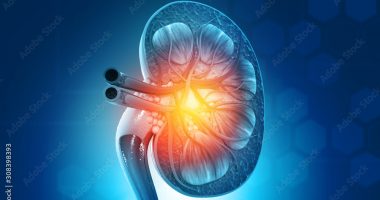- Exopharm (EX1) has posted tepid results from a rodent-based study into its tissue regeneration products
- The two products include Cevaris, a stem cell-derived EV product, and Plexaris, a platelet derived EV product
- An in-vitro BioMAP study was conducted to investigate the safety and function of Exopharm’s Cevaris product
- The study demonstrated the products to be well-tolerated by the animals, with no toxicity, adverse effects or knee swelling observed
- Nevertheless, according to the company, this initial test model, which chemically induced osteoarthritis to cause a severe condition, was not optimal for testing tissue regeneration
- As a result, the company may carry out a study using a mild-to-moderate osteoarthritis model to better reflect of the products’ targeted indication in humans
- Exopharm is down 19.3 per cent, trading at 56.5 cents
Exopharm (EX1) has posted tepid results from a rodent-based study into its tissue regeneration products.
The two products include Cevaris, a stem cell-derived EV product, and Plexaris, a platelet derived EV product.
An in-vitro BioMAP study was conducted to investigate safety and function of Exopharm’s Cevaris product, which revealed the product to be non-toxic at the tested concentrations.
Cevaris also demonstrated immunomodulatory, tissue remodelling and inflammatory properties in addition to showing proliferative effects in fibroblasts, indicating utility in wound healing and related activities.
An in-vivo animal study investigating induced osteoarthritis (OA) in the knee and treatment with the products was conducted at Cellvax, an independent French CRO. The study demonstrated the products to be well-tolerated by the animals, with no toxicity, adverse effects or knee swelling observed.
Exopharm says results from the study were encouraging for future use of Cevaris and Plexaris.
However, the initial test model, where the chemically induced OA caused a severe condition, was not optimal for testing tissue regeneration. The model produced defects which in the human clinical setting would warrant knee replacement rather than medicinal treatment.
“Initially, we were surprised to see no beneficial effect of either Plexaris or Cevaris over control until we looked at the knee scans,” said said Dr Angus Tester, Head of Product Evaluation.
“We realised that in this testing, the knee joints were damaged beyond repair, with no obvious cartilage cells available to respond to the exosome treatment. To accurately evaluate the exosome efficacy, we will need to have a model that has a less severe joint damage as the baseline to gather meaningful efficacy data”.
The company says this result has encouraged a potential study in a mild-to-moderate OA model more reflective of the targeted indication in humans.
Exopharm is down 19.3 per cent, trading at 56.5 cents at 1:10 pm AEDT.







